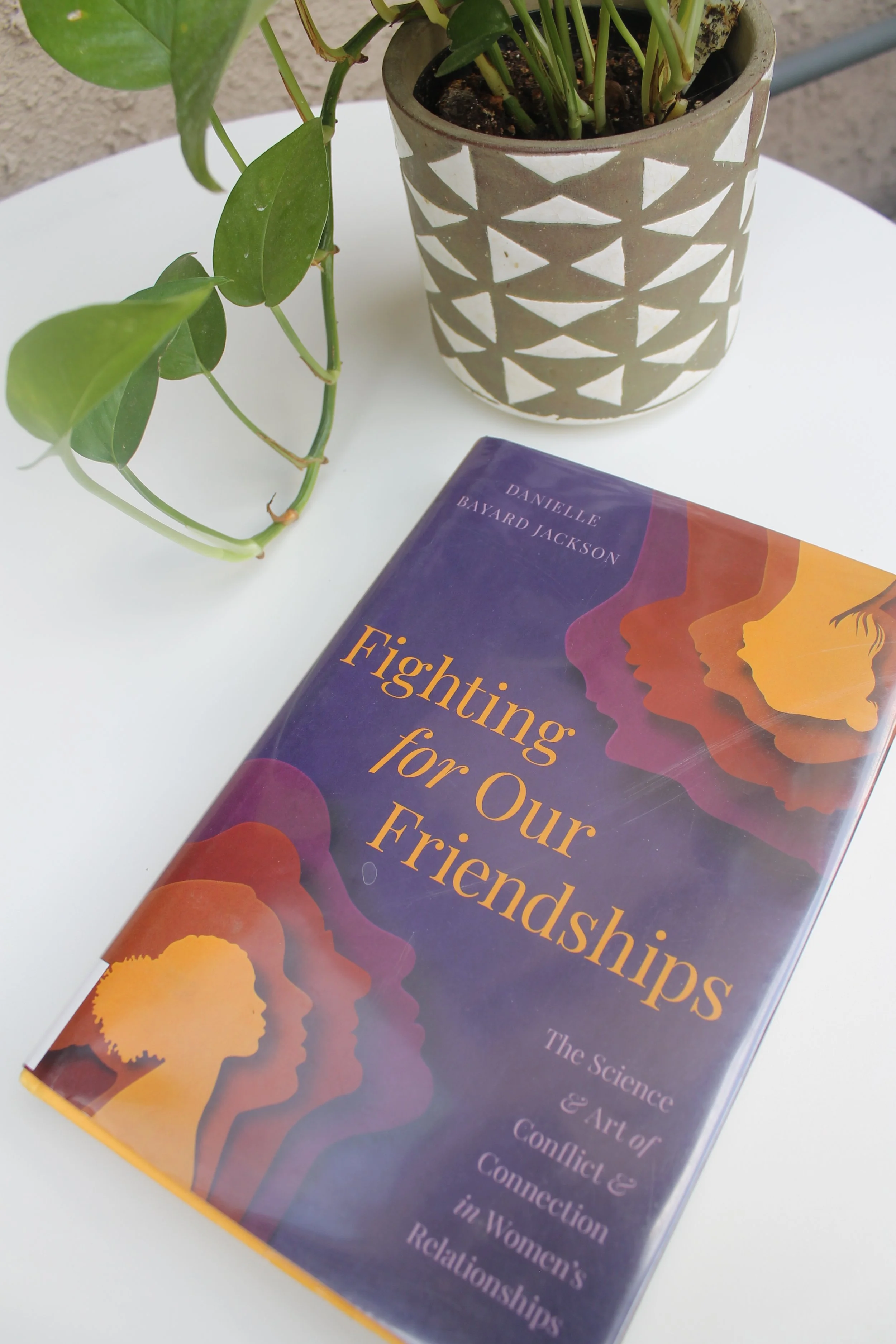Book Review: Fighting for Our Friendships
When we think about conflict in relationships, we often brace ourselves for the worst: hurt feelings, distance, or even breakups. But what if conflict wasn’t something to fear in our friendships, especially with other women? What if it could actually strengthen our relationships instead of tear them apart?
That’s the powerful message at the heart of Danielle Bayard Jackson’s book, Fighting for Our Friendships: The Science and Art of Conflict in Female Friendships. This book is a must-read for anyone navigating the often complex world of adult female friendships, and how to keep then nourished, even when things get tough.
Why This Book Matters for Women Navigating Adult Friendships
In a culture that often glorifies romantic love and shelves platonic connections, Fighting for Our Friendships is a refreshing, research-backed celebration of the emotional intimacy and work that goes into sustaining long-term friendships. Jackson, a former high school teacher turned friendship coach, draws from sociology, psychology, and real-life conversations to unpack why so many women struggle with conflict, and what we can do about it.
She challenges the outdated idea that “real” friends don’t argue. Instead, she offers practical tools for having difficult conversations, setting boundaries, and repairing ruptures. It’s a book that says: yes, friendship takes effort. And yes, it’s absolutely worth it.
Key Takeaways from Fighting for Our Friendships
1. Conflict Isn’t the Problem. Avoidance Is
Jackson emphasizes that conflict in friendships isn’t inherently bad. What creates damage is the silence, avoidance, or ghosting that often follows it. She encourages readers to reframe conflict as a moment of clarity—a chance to understand each other better and strengthen the connection.
2. Adult Friendships Need Just as Much Care as Romantic Ones
We often expect adult friendships to be “easy,” but Jackson reminds us that friendship is a relationship that evolves, and requires intentional check-ins, vulnerability, and honesty, just like any partnership. This is especially true for women navigating transitions like motherhood, career changes, or moves.
3. Repair > Perfection
One of the most validating messages of the book is that you don’t have to get it all right. What matters most is the ability to repair, to circle back, take accountability, and offer grace. Jackson provides sample scripts and strategies that make the repair process feel more doable and less scary.
Why This Book Resonates; Especially with Women of Color
If you’ve ever felt like you’re “too much” for bringing up a hurt feeling in a friendship, or you’ve quietly mourned the loss of a friend after an unresolved disagreement, you’re not alone. Fighting for Our Friendships puts words to the unspoken tension many women feel: the pressure to keep friendships peaceful, even at the cost of authenticity.
But as Jackson shows, peace without honesty isn’t real intimacy. And when we do lean into hard conversations with care, compassion, and a little courage, we give our friendships room to deepen.
This message is especially meaningful for women of color, who are often raised in environments where caregiving, emotional labor, and people-pleasing are deeply ingrained. Many of us were taught, implicitly or explicitly, to avoid conflict, hold things in, or keep the peace at all costs, even when it means abandoning our own boundaries.
Jackson’s work gently challenges these narratives, offering a liberating reframe: asserting your needs and speaking up isn’t a betrayal of your relationships, it’s a way to honor them. For women of color who are unlearning codependency, perfectionism, or fear of rejection, this book offers both validation and tools for practicing healthier, more reciprocal friendships.
Final Thoughts: Let’s Normalize the Work of Friendship
Fighting for Our Friendships is a powerful reminder that friendships are central to our well-being. And just like any meaningful relationship, they deserve time, effort, and the willingness to face hard things together.
So the next time you find yourself in a moment of tension with a close friend, take a breath, and remember that this could be the very conversation that brings you closer.
Want to deepen your friendships in a healthy, grounded way?
Download my worksheet designed to help you explore and strengthen secure attachment in your friendships. Whether you're working through trust issues, communication challenges, or just want to feel more connected, this tool offers gentle prompts rooted in emotional safety and relational growth.
De aquí y de allá,
Elsa Matsumoto, LCSW, PMH-C

